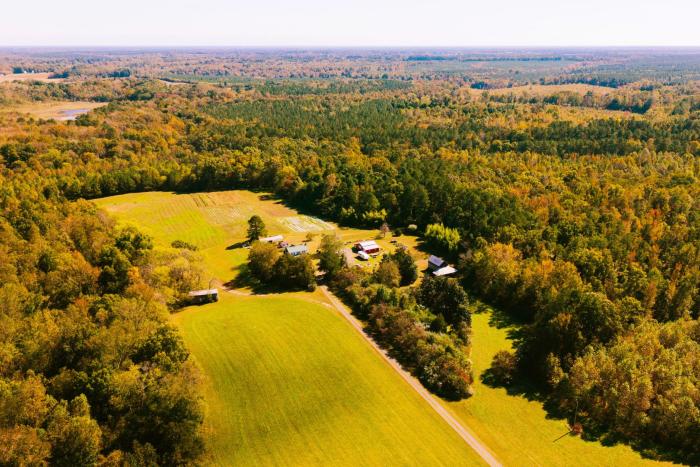On the 30th Anniversary of a Diagnosis, a Love Letter to the MCV Campus
Ross Mackenzie is a retired syndicated columnist who served for 38 years as editor of the editorial pages at the Richmond News Leader and Richmond Times-Dispatch.
In 1989, he was diagnosed with lymphoma in his first of two bouts with the disease. In both fights for his life, Ross used his column to provide an insider’s look at the disease and to offer inspiration to others who were battling cancer.
Throughout his journeys, Ross walked alongside invaluable allies from across the MCV Campus and VCU Massey Cancer Center. And on the 30th anniversary of his first diagnosis, he decided to pen a letter to the people and the institution that saved his life two times over.
Always having enjoyed a long drive to clear his head and think, he set out from Richmond for his cabin in Michigan this past spring. In the evenings along the way, at hotels and other stopovers, the longtime newspaperman sorted, wrote, edited and refined the words he wanted to share with the MCV Campus.
Those words came together in the moving love letter below.
By Ross Mackenzie
This is a love note …
Thirty years ago (remember that number: we’ll come back to it) I put the afternoon News Leader editorial pages to bed (first-edition deadline 10:20 a.m.) and went to play noontime handball. At 2:00 I had a routine physical at McGuire Clinic on Parham Road with my internist — MCV-trained Hilton Almond.
Toward the end of that physical, as Dr. Almond pressed around my upper abdomen, he said: “You’re not pregnant, are you?”
“Not at last check,” I said.
And he said: “I think you need to go downstairs for a cat scan.”
He was suspicious of something he was feeling near my spleen; he was thinking possible lymphoma. The scan and a subsequent biopsy confirmed it. That was 1989. I was 48.
Thus began the battle of my life. What made victory possible — to the extent one can deploy the word victory regarding cancer — were three things: a benevolent Lord, an angelic wife and stellar American medicine — particularly as practiced at MCV.
*****
Following the biopsy, a desperate call went out to Whitey Robertson (MCV 1964), a thoracic surgeon and across-the-meadow Goochland neighbor. “What should I do?” I said. “Where should I go?”
“You need to see Walter Lawrence,” he said. “I’ll give him a call.”
That evening Dr. Lawrence came by the McGuire hospital room where I was recovering from the biopsy, read my charts, and pronounced me “a lucky guy.”
“You’re lucky to be living now,” he said, “because for years we operated on lymphomas and in every case the surgery failed. Then we got smart and concluded we couldn’t treat lymphomas surgically, and we started using chemotherapy. You’re going to do fine.”
For my wife and me in that vale of tears, the notions of “lucky” and doing “fine” were difficult to process let alone embrace. But he proved right. And over the years wonderful Walter Lawrence, who felt himself greatly dubious about some of the pieces I wrote in the News Leader and Times-Dispatch, delighted in sending letters to the editor saying I couldn’t possibly have been serious in saying the outrageous things I wrote in such-and-such an editorial or column — and I delighted in publishing them.
Founding director of the Massey Cancer Center and a past president of the American Cancer Society (and a fellow Chicagoan), Dr. Lawrence dispatched my wife and me to Sloan-Kettering for a second opinion from Vincent DeVita, the Julia Childs of chemo recipes that had put Hodgkin’s Disease into oh, the 96 percent cure-zone. (My cancer was the related non-Hodgkin’s Lymphoma — NHL; the thinking then was that patients with NHL had maybe a 50 percent chance of getting out of it alive). Dr. DeVita confirmed the diagnosis and said the smart thing (living as we did in Richmond) would be to be treated at MCV, which — he said — boasted some of the nation’s premier lymphoma physicians.
I signed on with Craig Howe, under whose direction beginning in late 1989 I had six cycles of promace-cytabom — followed (after a June break in 1990) by six weeks of radiation of the principal site directed by Rupert Schmidt-Ulrich.
All that worked spectacularly. Remission came by cycle three; I completed the remaining three cycles and took the full regimen of radiation. With the lymphoma knocked back, Dr. Howe suggested drawing and banking my bone marrow — the better to repel the lymphoma orcs should they try to take me out again. There was no follow-on therapy. I resumed handball and writing pieces that bobbled the cocktails of — among others — Walter Lawrence.
*****
Ten years later, in 1999, we had a revisit. Craig Howe had gone to Rochester and the National Marrow Donor Bank. This time my doctor was Saul Yanovich, who prescribed CHOP (A chemotherapy regimen consisting of cyclophosphamide, hydroxydaunorubicin hydrochloride, vincristine and prednisone) interspersed with Rituxan — and then two years of Rituxan at six-month intervals. All that did the trick again; he deemed radiation unnecessary. Prior to moving to Georgetown and subsequently to the University of Maryland, Dr. Yanovich handed me off to Harold Chung.
Dr. Chung has followed me for the past 17 years — without any maintenance therapy but with scans and blood-draws and a generous blend of wisdom, verity and light. I may be biased, but I think (no, I know) he and Drs. Almond, Robertson, Lawrence, Howe and Yanovich are as good as doctors get.
*****
Tie-back: This love note is occasioned by the 30-year anniversary of my initial diagnosis.
My journey began with the MCV-refined instinct of Hilton Almond and flowed through Whitey Robertson and Walter Lawrence to the informed and scrupulous monitoring of Harold Chung. Along the way there were countless other MCV physicians, clinicians and steadfast healing nurses — such as nurses Brenda and Lynn during cancer No. 1, and Patricia and Angela during cancer No. 2.
Without that full cavalry riding to the rescue — and without, let’s see: North Hospital, Dalton Clinic, Radiation Oncology, the Bone Marrow Transplant Unit, Massey and the Stony Point Clinic — no further dreams in the script would have come true.
I wouldn’t have known the past trifecta of decades — nor the joys those 30 years have contained. None of our sons’ college years and careers, none of their marriages and children, none of the life my wife and I have lived holding hands — none of her wind-rush beneath my wings. No sunsets or moonrises. No crashing surf, no riffling creeks, no breezes soughing in the birches and pines. No getting lost in books at night; no waking in the morning and refusing to let the old man in. No learning from our Labrador how to roll on one’s back in life like a happy dog.
Thirty (or indeed 20) years ago, what remained would have been buried or sprinkled — and that would have been that. All else never would have existed or happened. None of it — just as for the World War I soldier lost in France and memorialized by Ernest Rhys:
He had the ploughman’s strength in the grasp of his hand. He could see a crow three miles away. He could hear the green oats growing and the southwest wind making rain. He could make a gate and dig a ditch and plough as straight as a stone can fall. And he is dead.
So:
Thank you, American medicine. Thank you, especially, MCV medicine — doctors and nurses and clinicians all. You gave me — you life-saviors made possible — my past 30 years. God bless you. Or, to borrow the compelling acronym used by American POWs to tap life-breathing messages through the walls of Hanoi’s charnel houses, GBU. Mere appreciation doesn’t cut it, nor gratitude. This…this is love.
- Ross Mackenzie
After writing the above letter, and before the MCV Foundation published it, Ross was involved in an accident on the river at his cabin in Michigan. He suffered two broken vertebrae and was flown to Richmond to once again receive world-class treatment on the MCV Campus.
Ross was told that similar injuries have often left people paralyzed or dead, but with the help of VCU Health physicians Ross is recovering in Richmond.
If you or a loved one have experienced the world-class, lifesaving care that Ross has now encountered three times, and you would like to ensure it is available for you, your family or your neighbors the next time it’s needed, please consider using one of the tools highlighted on our giving page to help save lives in your community.


